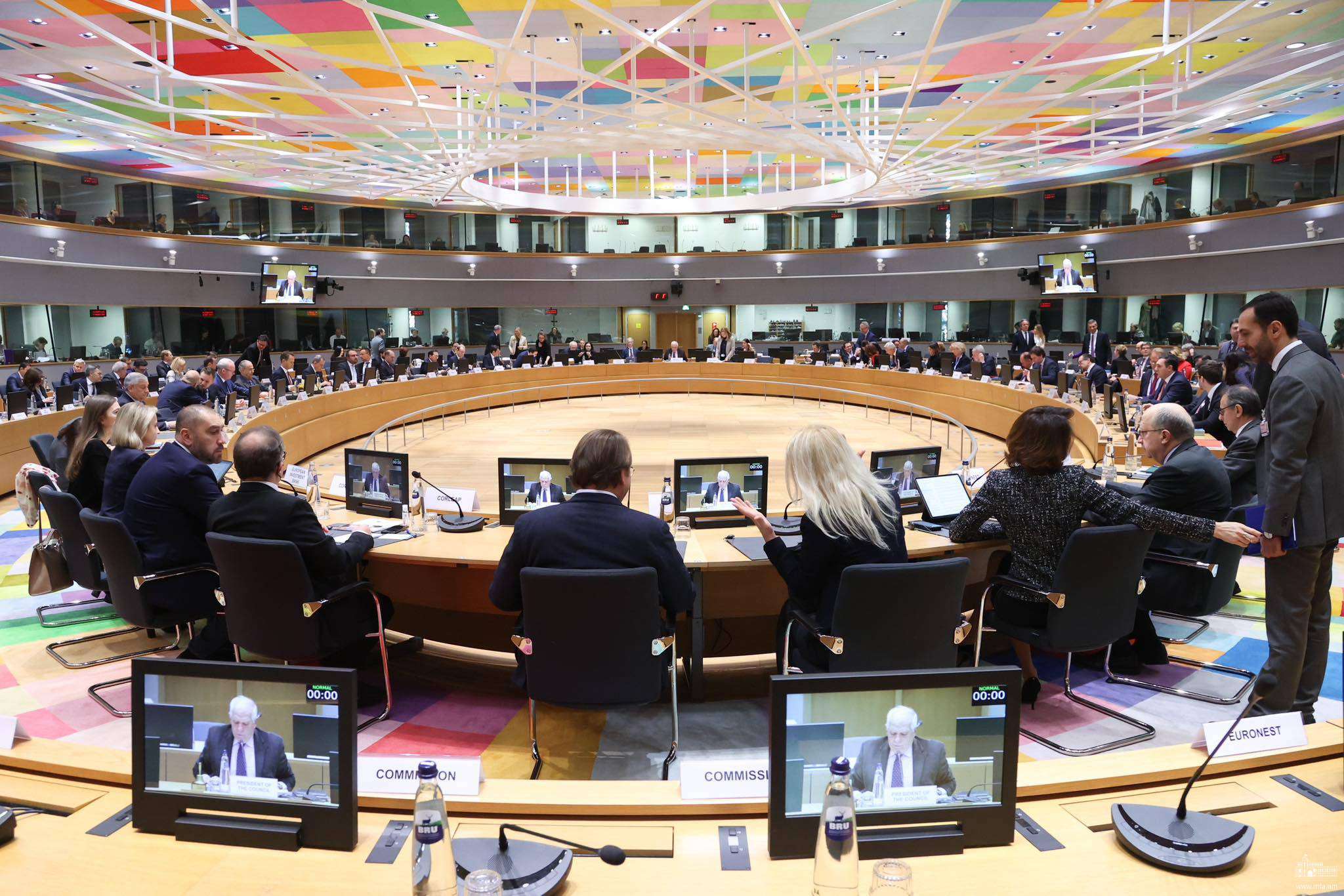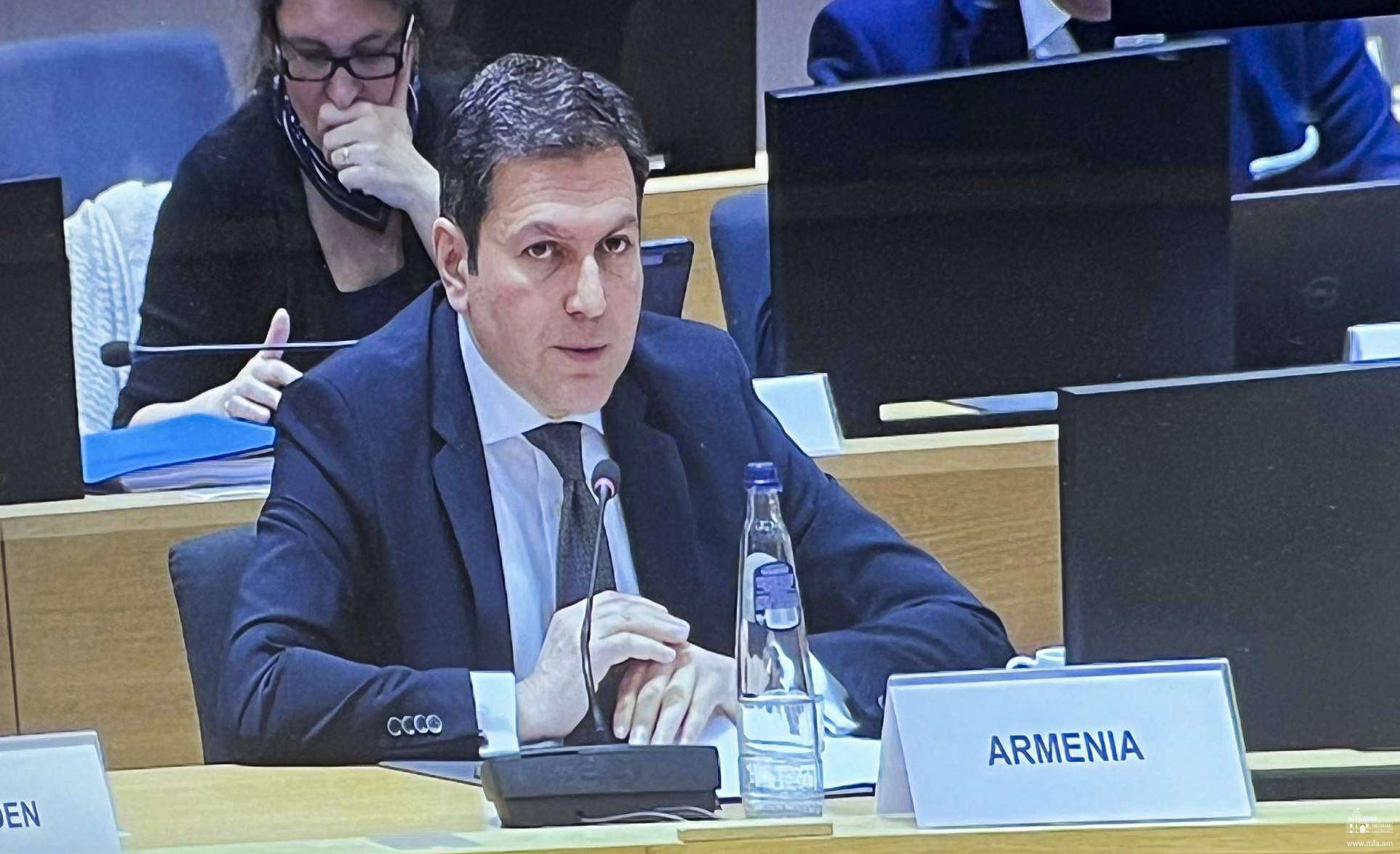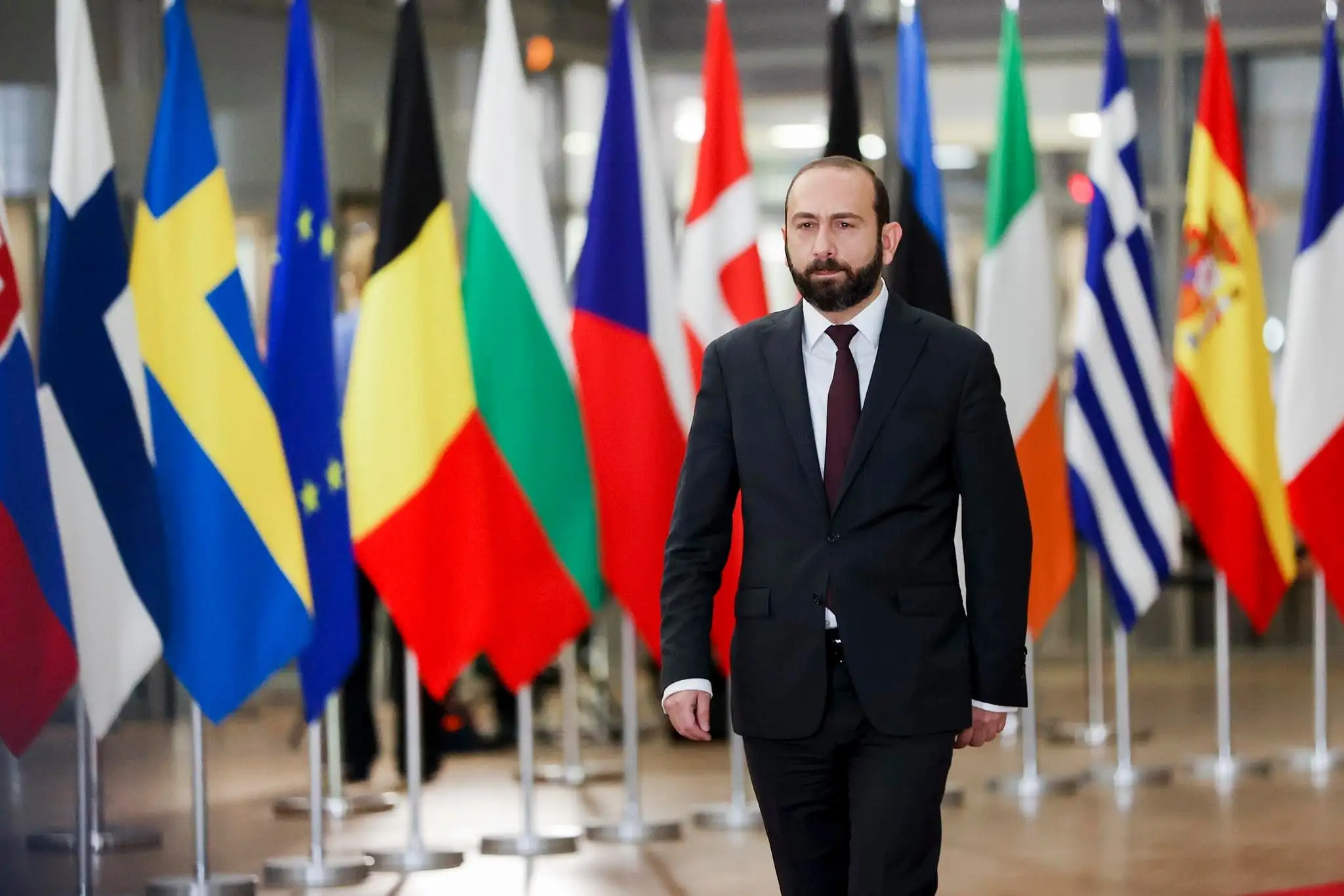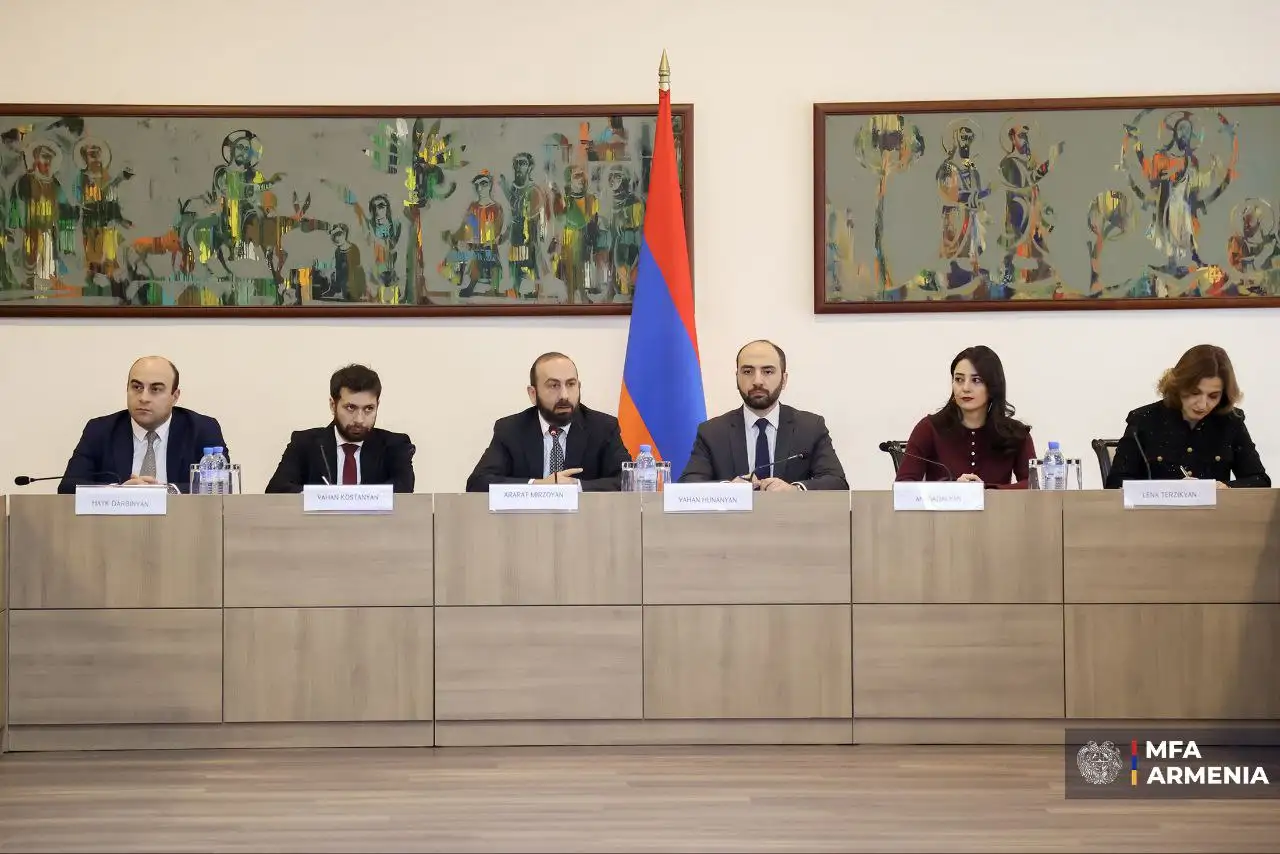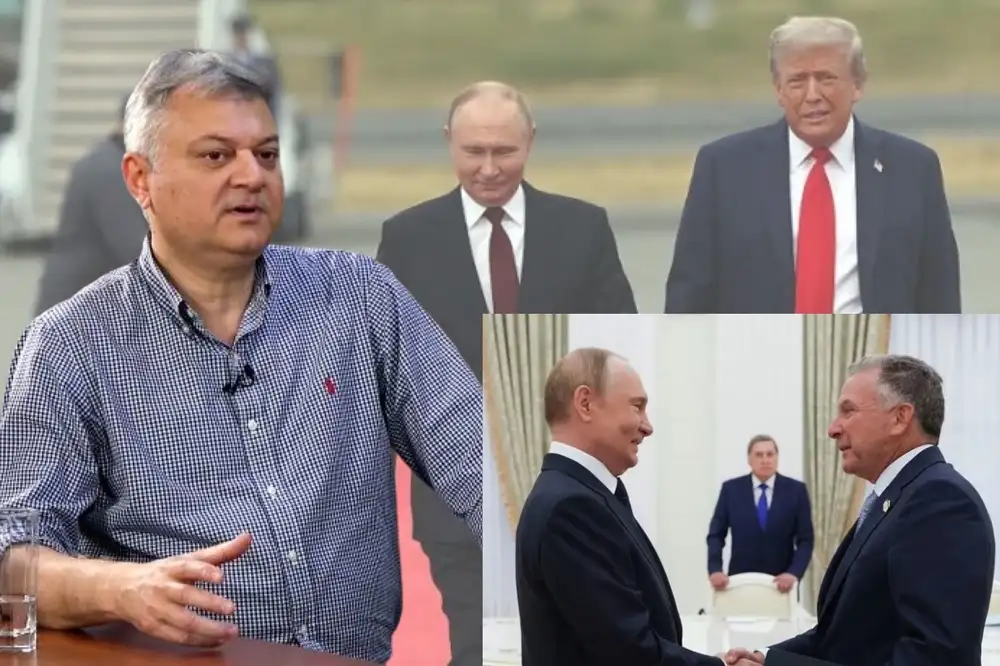On December 12, in Brussels, RA Deputy Foreign Minister Paruyr Hovhannisyan participated and gave a speech at the meeting of EU Eastern Partnership Foreign Ministers, during which, in particular, he noted:
"Dear Colleagues,
I am glad that we have the opportunity to reflect on the developments in the Eastern Partnership region and exchange ideas on the future of this critical format.
Maintaining this format has been fraught with challenges, so efforts to ensure ongoing discussions on the future of the Eastern Partnership and the resumption of activities within the form, including holding high-level meetings, are greatly welcomed.
The Eastern Partnership has significantly contributed to the democratic transformation of my country. In this context, we think about the restoration of activities within the framework of the Eastern Partnership and this discussion about the format's future.
Despite the current uncertainties and unexpected developments, the format should continue to operate; it should not be replaced by any other initiative or limit the possibility of engaging in any other pan-European form.
Referring to the possible actions aimed at advancing our cooperation and bringing the European Union closer to its Eastern partners, I would like to emphasize that first of all, it is necessary to define, perhaps it would be more accurate to say, redefine the values that are the basis of our cooperation.
The lack of balance between values and interests, and questionable policies and approaches, which suggest that shared values are sacrificed for short-term political or economic interests, do not serve the further rapprochement of the EU and its Eastern partners.
Dear Colleagues,
During 2022, the European Union and its eastern neighborhood faced enormous challenges. In this period of shaking of the European security architecture, we are also witnessing the increase of tension in the South Caucasus.
One of the eastern partners, Azerbaijan, not only continues to threaten to use force again against the Republic of Armenia but has also committed several acts of aggression, occupying more than 140 square kilometers of the sovereign territory of Armenia. On September 13-14, undertaking a large-scale attack, Azerbaijan targeted the civilian population and infrastructures, schools, and hospitals, resulting in more than 200 casualties, including among the civilian population, using drones to strike even deep within the sovereign territory of Armenia.
Moreover, during the past year, Azerbaijan has constantly attempted to carry out ethnic cleansing against the remaining 120,000 people of Nagorno-Karabakh, threatening the operation of the vitally important Lachin Corridor, which was agreed upon in the tripartite statement of November 9, 2020.
It is noteworthy that this is happening at a time when Armenia and Azerbaijan are conducting negotiations on normalizing relations. With its bellicose rhetoric and threats of force, Azerbaijan is trying to force Armenia to make concessions.
In this regard, I emphasize that aiming to contribute to the security of our region, the European Union and its member states must set certain red lines. Refraining from the use of force should be an absolute red line, and bilateral statements (addressing both sides equally) in this regard, in fact, only encourage the aggressor to continue his actions.
We appreciate colleagues who do not shy away from pointing out the aggressor and speaking out about the need to investigate war crimes and properly bring their perpetrators to justice. No less important is the continuous demand for the complete withdrawal of the Azerbaijani armed forces from the sovereign territory of Armenia. Their continued presence in the internationally recognized part of Armenia is a serious challenge to our region's fragile peace and stability.
I commend the EU for the rapid and effective deployment of EU monitoring capabilities in Armenia. The contribution of that mission to the stabilization of the situation in the region is undeniable. Armenia highly appreciates the work of EUMCAP and believes that since the problem remains very fragile and the risk of new aggression by Azerbaijan is very high, the mission should continue to fulfill its vital role on the ground.
Dear Colleagues,
Armenia initially adopted the FTA as an additional measure for its comprehensive reform agenda aimed at strengthening respect for human rights and, the rule of law and effective governance, fighting corruption; areas where many of us have made genuine efforts to ensure the prosperity of our peoples. The European Union remains Armenia's key partner in facilitating institution-building and supporting our reform agenda.
Another issue for discussion is accelerating the implementation of the Economic and Investment Plan to maximize benefits for our citizens. Global and regional crises and security challenges in recent years affecting the EaP countries have slowed the implementation of the Indicative Initiatives arising from the Economic and Investment Plan. However, I am happy to note that our government continues to actively engage with our EU partners in the direction of the implementation of all initiatives planned for Armenia. We are ready to expand further the scope of our cooperation for the benefit of our citizens.
Thank you."
